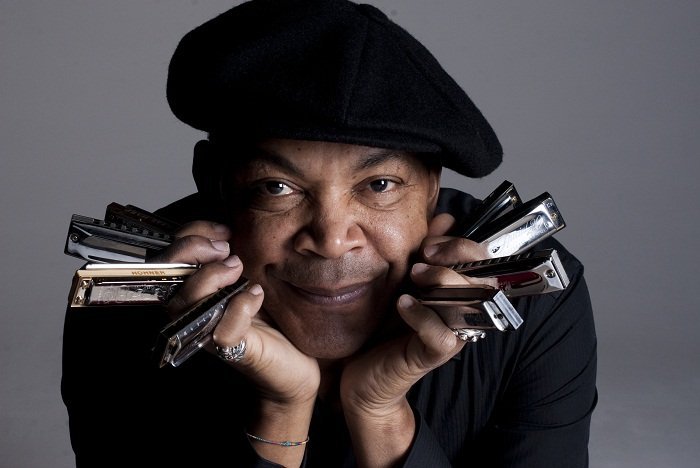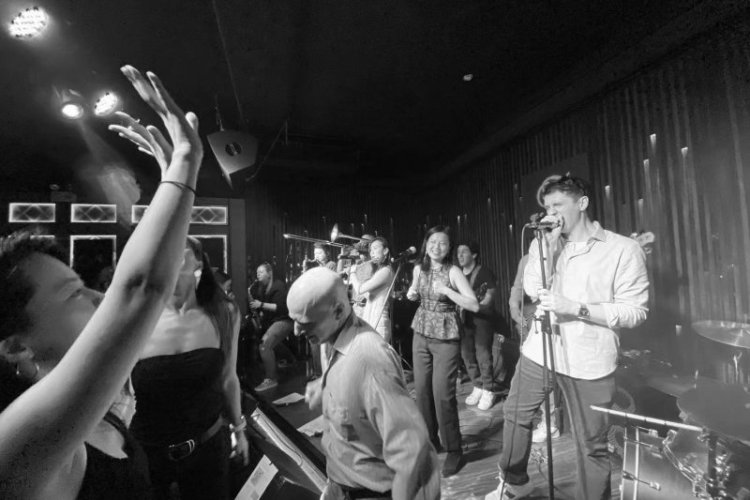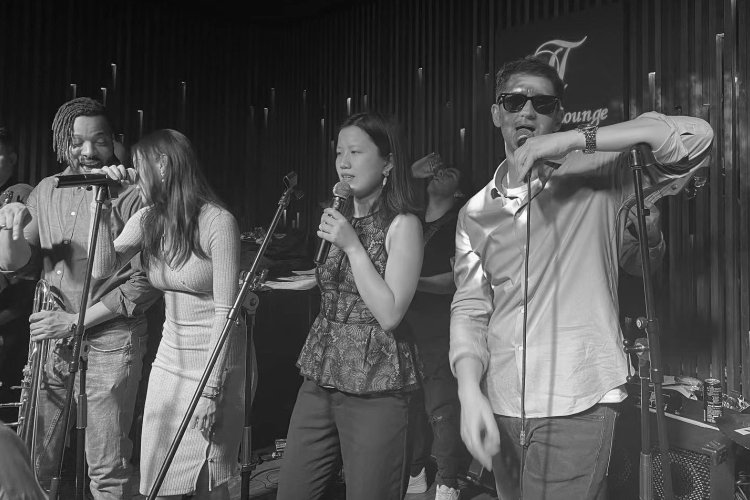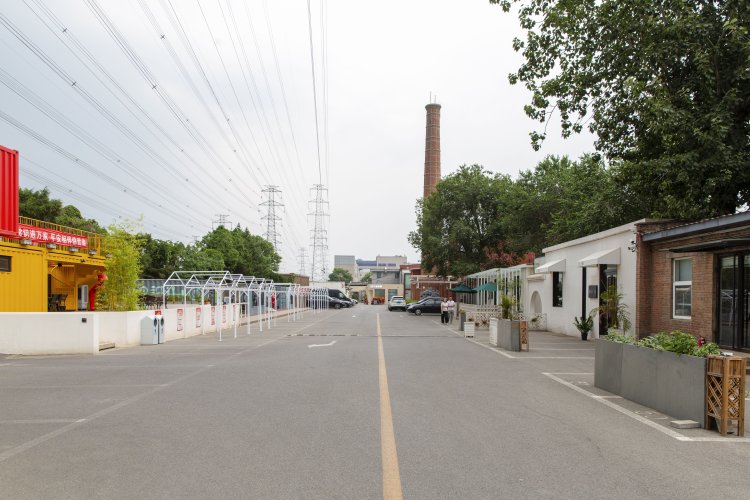"Even Blues Standards Were Once Personal Stories" Says Harmonica Master Sugar Blue
This weekend won't be the first time that blues marvel Sugar Blue's harmonica notes reverberate throughout Blue Note Beijing. "I am in and out of China all the time," he says when we call him up in Shanghai, roughly one year after he last performed in the Chinese capital.
Sugar Blue (born Joshua "Jimmie" Whiting) not only has an impressive career spanning over 50 years, but also plenty of big-name collaborations under his belt. Recording a song with the Rolling Stones may be his biggest claim to fame, but he has also worked with other legends Willie Dixon, Eric Clapton, and Buddy Guy. Sugar Blue started playing in the late '60s and is still actively touring now as he nears his 70th birthday.
Ahead of his shows this weekend we chat about turning memories into music, how he chose his nickname, China's love for blues, and more.

You've said that coming up with the name Sugar Blue was a lucky accident. You just found it written on records lying in the street and decided to use it. Is that true?
Actually, a lady threw a box of old records out the window. I was playing under her window and she clearly didn't appreciate it, and so she threw a box at me. I guess it was about two o'clock in the morning. The records all smashed except one that was called Sugar Blues. And that's where I decided to get my name from.
Were you actively looking for a name, or was it only when you saw Sugar Blues that you realized you needed one?
Well, it was serendipity. And all of the great players have nicknames, so I wanted one too.
Did you grow up with the blues?
I grew up listening to big band and jazz, especially vocalists and sax players.
When I was a kid I also got into folk music. That, in turn, led me to The Beatles, Rolling Stones, and all of that. I was listening to a record by the Rolling Stones, where they had a tune written by Willie Dixon who was a blues songwriter. So I looked him up and discovered all of these great bluesmen, which really got me into it.
What about the harmonica?
That was before I got into blues. There were a lot of Western movies on TV and soundtracks from them would often have the harmonica on them. I would just play along with the TV or radio.
Can you talk a little about performing your own songs versus blues standards?
I was actually working with Willie Dixon for a while. He always told me that when the stories are yours, you can tell them the best. But you should always try to add to the canon.
But also, you have to understand that blues standards were also someone's stories. Before they became classics, they were simply someone's life experience.
Do you usually write songs from your own experience or are you looking at what is happening in society and the wider world?
I write about what I see, hear, and feel in the world or among my friends. What happens in the world happens to all of us.
You have been playing actively since the late '60s. Did you ever consider doing something else?
Oh, I have done many things in my life. I spent time in the army, I was a teller in a bank, I drove a cab in New York City, washed dishes, shined shoes and more. Many things to make a living. All of these things put me in touch with people and it taught me a lot about them.
When you work in the service industry, people trust you. They have to get stuff off their chest and I have always been an avid listener. My mom told me a long time ago, "Son, you will learn a lot more by listening than you will by talking."
I notice that blues gigs in China fill up venues and there is a lot of love for the genre. How do you think that happened?
Well, if there is one thing that is true about the blues, it's that the genre is universal. It is music based on feelings and you don't need a language to communicate that. If you got the feeling, if you got the soul, and you can communicate it through your music, then language becomes secondary.
Also, blues is generally a basis for all western music, other than classical. Rhythm and blues, rock 'n' roll, country, jazz, reggae, and others would simply not exist without blues. That's why blues is so familiar, so universal. No matter where we live, we all feel the same things and feelings that are the basis of all human expression.
Sugar Blue will be sharing his life experiences and harmonica virtuosity at Blue Note on Apr 27-28. Tickets start at RMB 200. More information and tickets here.
READ: How The Descendents' Coffee Addiction Fueled Decades of Pop-Punk Classics
Images: Sugar Blue official Facebook page, The Blues Mobile







